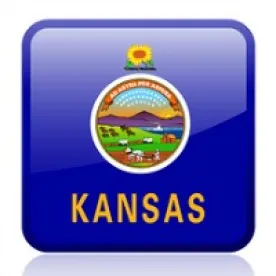Employers with Kansas operations should be familiar with the 2013 amendments to the wage withholding and deduction provision of the Kansas Wage Payment Act (KWPA). The amendments added two new subsections to expand when employers may withhold or deduct wages. The amendments were intended to allow more discretion to withhold or deduct wages for more reasons. However, the imprecise drafting of the amendments, coupled with Kansas Department of Labor (KDOL) regulations that have not been updated, have left several open questions. Here are three practical tips to consider.
1. Have a “signed written agreement” in your new-hire paperwork for certain withholdings and deductions.
The amendment permits employers to deduct for the following purposes, “pursuant to a signed written agreement between the employer and employee.”
-
To allow the employee to repay a loan or advance which the employer made to the employee during the course of and within the scope of employment;
-
To allow for recovery of payroll overpayment; and
-
To compensate the employer for the replacement cost or unpaid balance of the cost of the employer’s merchandise or uniforms purchased by the employee.
Before the amendments, employers needed only to obtain a “signed authorization” for certain deductions, including those for erroneous wage overpayments. Similarly, employers did not need a written authorization from employees to deduct or withhold wages for an employee’s repayment of a loan or advance, if the employee had requested it in writing. Now, in both scenarios, employers need a “signed written agreement between the employer and the employee.”
Kansas employers should consider including such an agreement in its new-hire paperwork to cover these deductions and those that the unchanged KDOL regulations permit with a “signed authorization.” Without such a prospective agreement, employers could be left with few desirable options if an employee refuses to sign such an agreement. Employers should also consider a signature line for a company representative to sign the form during onboarding to avoid a potential argument from the employee or KDOL that the form does not constitute a “signed written agreement between the employer and the employee.”
The third permitted deduction, for the “replacement cost or unpaid balance of the cost of the employer’s merchandise or uniforms purchased by the employee,” raises many unanswered questions. For example, how do we calculate “replacement cost”? Until further guidance is provided, Kansas employers should consider deducting wages only of the unpaid balance to avoid possible disputes over replacement-cost computation.
2. KDOL regulations that state which deductions are not permitted are still in effect.
Both the earlier and current versions of the KWPA permit deductions “for a lawful purpose accruing to the benefit of the employee” so long as the employer has a “signed authorization by the employee.” The regulations interpreting that provision remain in effect. In general, permitted deductions include those for contributions to employee welfare and pension plans, those made pursuant to a collective bargaining agreement, and similar deductions.
However, deductions that KDOL states do not accrue to the benefit of the employee, and are not allowed (regardless if the employer has a signed authorization), include those for breakage or losses resulting from alleged negligent acts (among others). Kansas employers should continue the practice of not deducting or withholding wages from current employees for these reasons. The ban on deductions for “breakage” or “alleged negligent acts” likely precludes wage deductions for repair costs to mobile phones or other electronic equipment.
3. Exercise caution when withholding final wages to “recover” employer property.
The amended statute permits Kansas employers to withhold “any portion of an employee’s final wages” for certain purposes. The employer must provide the employee with “written notice and explanation” for the withholding. Employers may withhold final wages to “recover” the employer’s property provided to the employee in the course of the employer’s business, including computers, electronic devices, and mobile phones (among others).
Employers may also withhold to recover “proprietary information such as client or customer lists and intellectual property.” Before withholding final wages for this reason, employers considering a trade-secret or unfair competition claim should question whether to withhold final wages as a tactic. Perhaps the company has a corresponding breach of a non-compete agreement, and such withholding could pressure the employee to comply with the agreement, but how will the employer ensure the proprietary information is fully recovered? The employer should also consider whether it wants KDOL to decide (via a wage complaint) such important issues such as whether the departing employee possesses proprietary information, which often involves complicated electronic discovery issues, or whether the information is proprietary or confidential in the first place.
Due to these and other unanswered questions, employers should consult with counsel before implementing policies to withhold or deduct current or final wages.



 />i
/>i

